Top 20 Alternatives to Google in 2024

Search engines are an integral part of life. Whether trying to find answers to some of life’s burning questions or researching places to travel, they provide access to the ocean of information on the internet. But Google is not alone in the game; rather, there are a lot of other search engines that are offering services catering to needs and preferences, and this article discusses 20 unique options, unveil the criteria for making an informed choice, and reveal what makes them stand out.

Discover how at OpenReplay.com.
Choosing a search engine is all about knowing what is most important to you. Here are the key things to consider:
-
Privacy: Find out what the search engine’s privacy policy is. Do they protect user privacy? Track or collect personal data? Do they take your consent? If privacy is important to you, look for a search engine with a firm privacy policy that does not share your data with third parties.
-
Relevance of Results: Are the results to your questions correct and comprehensive?
-
Tools: Does it have anything besides basic search, like image filtering or advanced operators?
-
User Experience: Is the interface clean, intuitive, and user-friendly?
-
Unique Features: From planting trees with each search to providing unbiased scientific data, some search engines besides Google offer unique functionalities that cater to specific needs and causes.
-
Diverse Perspectives: Relying on one search engine can limit the range of content you’re exposed to. Using other search engines can diversify the information and results you get, providing a broader view of topics.
-
Speed: Find how fast the search load is. Is it efficient and loads quickly?
-
Ease of use: Find out how easy the search engine is to use. Is it simple to understand? How are the interface and navigation?
-
Customization: See how the search engine’s customization works. Do they allow users to set preferences or filter results?
-
Advertisements: Do they display ads alongside search results? If you prefer a search engine that does not use advertising, you may want one that does not profit through advertising.
Top 20 Google Alternatives for 2024
Below is a vast overview of search engines in alphabetical order, highlighting each engine’s core features, strengths, and who it’s for:
1. Baidu
Baidu is a Chinese search engine that can be added to the list of alternatives for Google. It is one of the largest search engines in China, taking up 52.11% of the market.

Baidu offers internet users a series of influential services, including news, cloud storage service, encyclopedia, and maps. The search engine suits businesses that want to establish credibility in the Chinese market.
Baidu boasts of leading awareness of the subtleties of the Chinese language and culture, offering appropriate and localized search results, news, and multimedia content. It is also famous for its rich AI capabilities in search, maps, and translation services.
Who’s this for: Users who reside within China or need Mandarin-specific content or only for the Chinese market.
2. Brave
Brave is an independent search engine developed by the developers of the Brave browser. It focuses on privacy but is also a user-first platform free from tracking and profiling. It is integrated into the Brave browser to provide ad-free browsing and rewards users in cryptocurrency, meaning it melds aspects of privacy with monetization in a unique way.

In 2023, Brave finally broke free from dependence on any other search engine, even Bing. It now uses its index only, a step ensuring user privacy and result transparency at the forefront of its search.
Brave Search—with 24.57 million daily active users as of January 2024—represents the fast growth that signals the trend of more privacy-oriented search engines. The advanced features include free video calls, offline playlists, and a customizable news feed.
Who’s this for: Users who want an ad-free, first-privacy experience and an independent search index.
3. Dogpile
Dogpile is a metasearch engine. It collects search results from several search engines, such as Google, Yahoo!, Yandex, Bing, etc., and presents them as one list. This gives users a comprehensive look at what the search results for their query will look and feel like. Dogpile is comfortable for users in that it offers an easy-to-use search engine interface.

As one of the famous meta-search engines, Dogpile collects results from all the major search engines, such as Bing and Google, and presents the best to netizens.
The search engine’s canine mascot is Arfie. Users click on a “Go Fetch!” button to carry out searches easily. The name is derived from the rugby term ‘dogpile,’ which means to fall on top of one another.
Who’s this for: Anyone who wants effective, aggregated search results from multiple engines in one place.
4. DuckDuckGo
DuckDuckGo is a private search pioneer and Google substitute headquartered in the United States. It offers a similar structure to Google and does not track users’ activity to protect consumers’ online privacy. More than 400 sites, like Bing, Wikipedia, and DuckDuckBot, generate its findings.

DuckDuckGo does not monitor or profile its users as Google does, which gathers a lot of user data to tailor ads and search results. This implies that you can continue to do anonymous searches on DuckDuckGo.
DuckDuckGo does not provide filter options based on a user’s search history profile or persistent targeted advertisements because it does not track search history or generate user profiles.
That means you don’t have to worry about the boogeyman observing you through your computer screen when you search.
Who’s this for: Privacy-conscious users wanting a secure search without being tracked in the process.
5. Ecosia
Ecosia is an environmentally conscious search engine that plants trees with all its profits. Founded in 2009, it has planted over 160 million trees to date and aims to plant one billion trees by 2024.

Ecosia is a nonprofit search engine that invests part of its ad income into tree-planting programs worldwide. The search engine earns through Microsoft Bing ads.
Secondly, Ecosia releases financial results and how it spends that money every month. It aggregates Google and Bing to scrape data from them and provide information links to the users, which route their search queries to pages such as Google, Amazon, and Wikipedia.
Who’s this for: Environmentally conscious users who want their searches to contribute to reforestation efforts.
6. Gigablast
Gigablast is a Search Engine designed to return results fast, reliably, and accurately. It was founded in 2000 by Matt Wells and has grown into a robust search engine contender.

One of the great things about Gigablast is that it is very fast. In fact, Gigablast claims that it can show search results at a faster scale, enabling users to immediately get their answers and thus save precious time since it will not take a long period.
Gigablast claims to have a huge index of web pages. According to their website, billions of web pages have been indexed, adding to the search results and making Gigablast one of the most extensive and comprehensive search engines.
Who’s this for: The Tech-savvy people who want open-source as a solution and would like to refine search results according to their preference.
7. MetaGer
MetaGer is a German open-source metasearch engine, attributed to privacy protection since it does not save and track users’ previous searches. MetaGer is supported by SUMA-EV-Association and runs on 100% renewable energy. MetaGer gets its search results from Scopia, Yahoo, Bing, Brave Search, and 24 of its small-scale crawlers.

It is available in German and English and offers web searches, images, news, and more.
This search engine is run by a nonprofit organization, guaranteeing that its operations are not subject to commercial influences. MetaGer uses green energy for its servers and strongly advocates data minimization and transparency.
Who’s this for: German users and those interested in a privacy-oriented, aggregated search experience.
8. Microsoft Bing
Microsoft Bing is a Microsoft product. It offers well-planned search results, eye-catching graphics, and highly optimized page design. This is one of the top five search engines worldwide.

Besides being a search engine with search features, what sets Microsoft Bing apart is its visual search and Office integration. It has oodles of search features, such as map, video, and picture searches.
Bing released “Bing Chat,” a new AI-powered Search engine now called Copilot, on February 7, 2023. The stated objective is to “Provide better search, more complete answers, a new chat experience, and the ability to generate content. ”
Also, users can collect points for each search they make with Bing’s rewarding reward system. These points can be used to buy movies and programs from the Microsoft Store. Regarding the latest purchasing possibilities, Bing has recently attracted users’ attention. It can greatly help a variety of e-commerce store owners.
Who’s this for: Microsoft users, fans of multimedia search, and anyone else who likes to earn rewards through searching.
9. Mojeek
Mojeek is a search engine company positioned as an alternative to major search engines like Google. Mojeek Limited aims to be an independent, unbiased search engine that returns search results. The firm acts as an alternative to Google.

Mojeek also points out that it is independent of larger corporations, which allows it to be more open and not subject to the control of third-party interests. It also strongly emphasizes protecting its users’ privacy and tries to return search results without tracking or storing data from any user.
It crawls and indexes Web pages using its independent ranking algorithm, so the search technology is independently performed. This independent search engine, Mojeek, was developed ground-up because one important belief was that if a search engine is independent, it should be independently constructed.
Who’s this for: Privacy advocates and users wanting an unbiased, independently-crawled search engine.
10. Naver
Naver is the famous Google alternative that respects users’ online freedom in South Korea. The interface is neat and user-friendly; it is available in Korean and English.
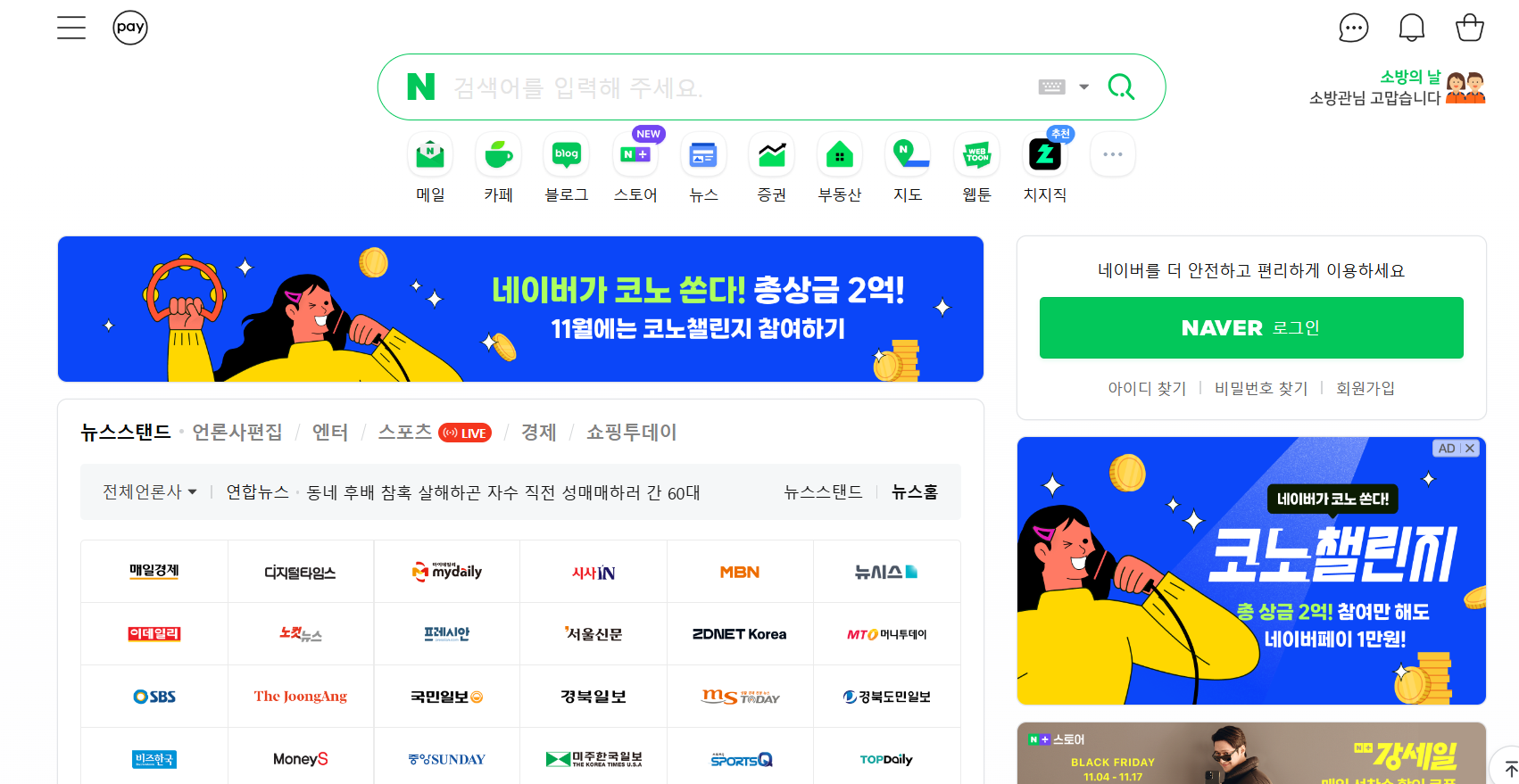
Its algorithm is mainly based on the Korean language, so you will probably get more appropriate results compared to other search engines.
It offers various beneficial options for users, such as news, shopping, mail, real estate, maps, and more. They can safely consider Naver one of the biggest alternatives to the Google search engine in South Korea.
Who’s this for: Naver is a domestically-oriented search engine whereby locally-made features, such as community Q&A, blogs, news, shopping, and maps, try to fit the specific needs of Korean language speakers.
11. Peekier
Peekier differs because of its preview capability, giving a snapshot of the web pages in the search results so users may have a clue of what is inside before clicking through to improve efficiency in searching and safety.
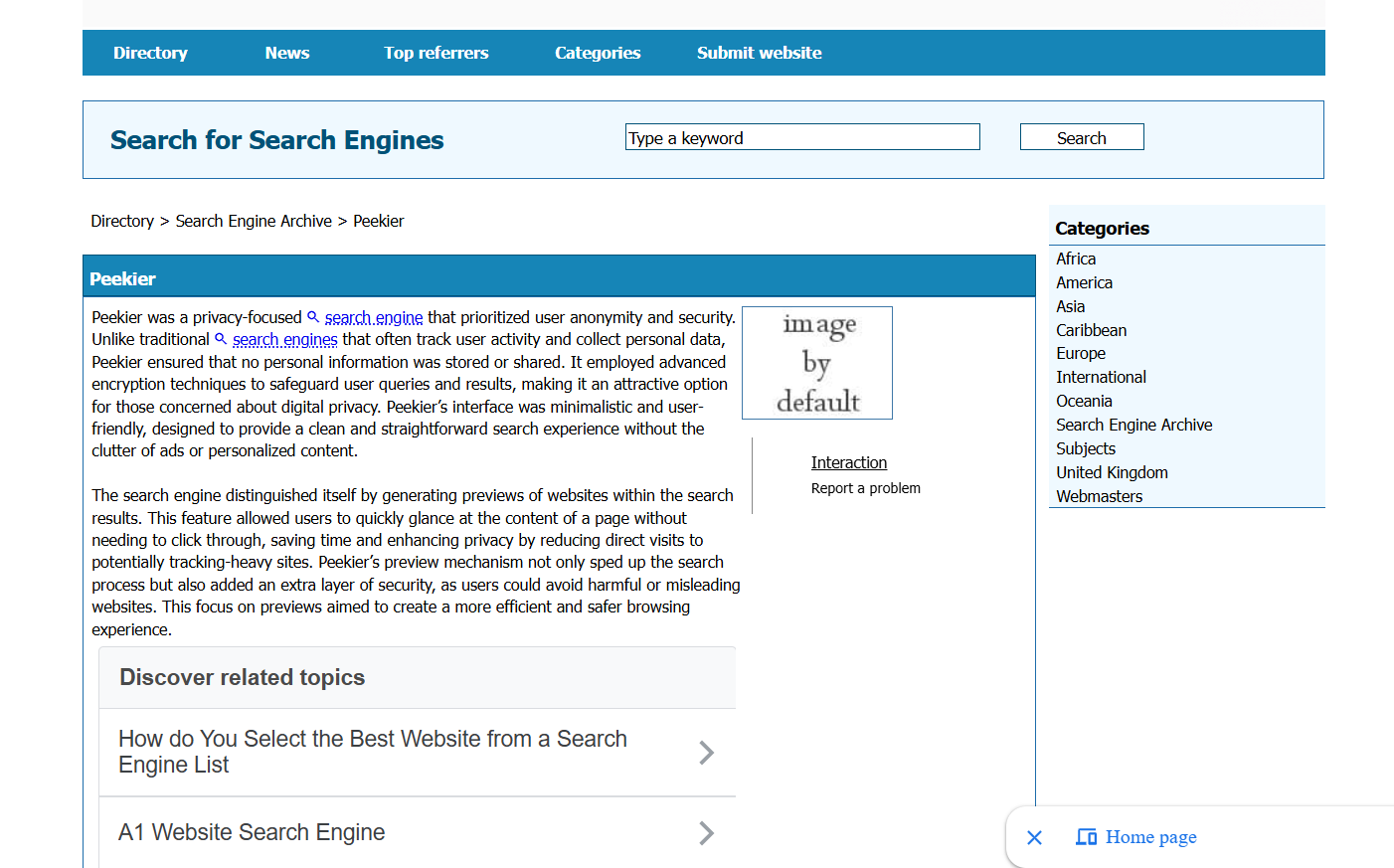
That way, users can have a fairly good idea of what content they may get in return, making their search immediately efficient. Similar to other private search engines, Peekier does not believe in storing users’ IP addresses or search histories.
It emphasizes user privacy and does not track users and their activities. This reflects the growing demand for more secure online experiences.
Who’s this for: This solution is ideal for those users for whom privacy is a big concern and who want to get a preview of sites before visiting them.
12. Qwant
Qwant is a French search engine launched first in 2013. It’s now the default search engine for the French government, and it processed roughly 18 billion search requests in 2018:
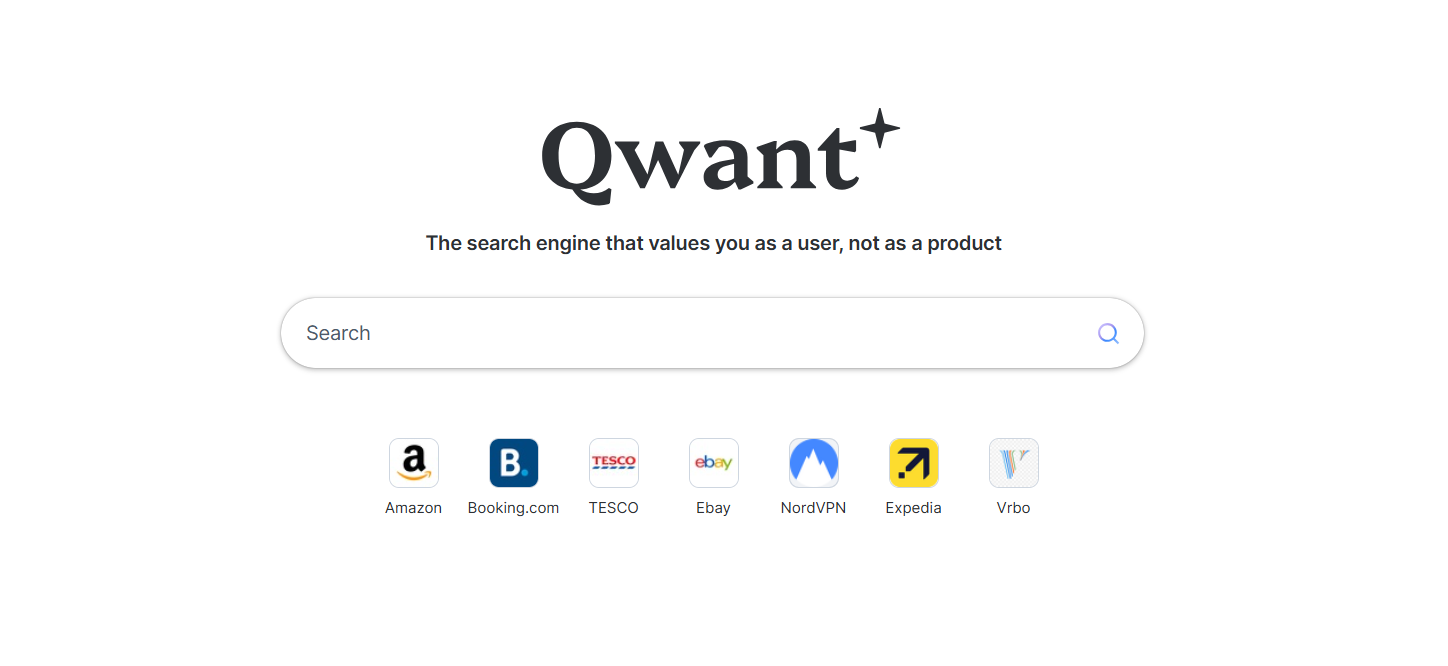
Qwant has a design similar to Google. It can filter categories for searching a term, such as News, Images, Videos, and Music. Apart from that, the selection of country and language of the result and the freshness of the content is possible.
Qwant uses innovative algorithms and indexing methods independent of private data. It is also committed to balancing information without partiality.
Who’s this for: European users and anyone seeking a search engine that aligns with GDPR without tracking.
13. Search Encrypt
Search Encrypt locally encrypts search terms and expunges them once you’ve completed your search. Thus, your searches will remain private and inaccessible to third parties.

Search Encrypt uses local encryption to secure your searches. The architecture of this search engine is such that it makes sure your search data remains safe and private.
Encryption secures your search terms, while the expiration of search URLs protects your search history from access after your session terminates.
Who’s this for: Anyone who wants to make data security and privacy pivotal to every online activity.
14. SearX
SearX is a very popular free metasearch engine that is self-hosted and does not log users’ web browsing activities. It offers open results using all the available search engines, keeping users’ online privacy intact.

SearX is an open-source, free metasearch engine that places a lot of emphasis on user privacy by aggregating results through different search engines without tracking the identity or data of its users. It is an effort to provide users with a safer alternative to popular search engines. Users and administrators can customize it to use specific search sources. By default, SearX uses a variety of search engines like Google, Bing, Yahoo, and DuckDuckGo, among many others.
Because SearX does not track users or run advertisements, there is no profiling of users or personalized advertisement pure search.
Who’s this for: Those oriented towards transparency, wanting to participate in open source, and a privacy-centered approach to an engine that provides results in one place.
15. Startpage
Startpage is also a very popular search engine that takes the online privacy of its users seriously. A plus it has over other search engines is that it will not store your IP; instead, it clears all your details from the search query and then forwards your request to Google.
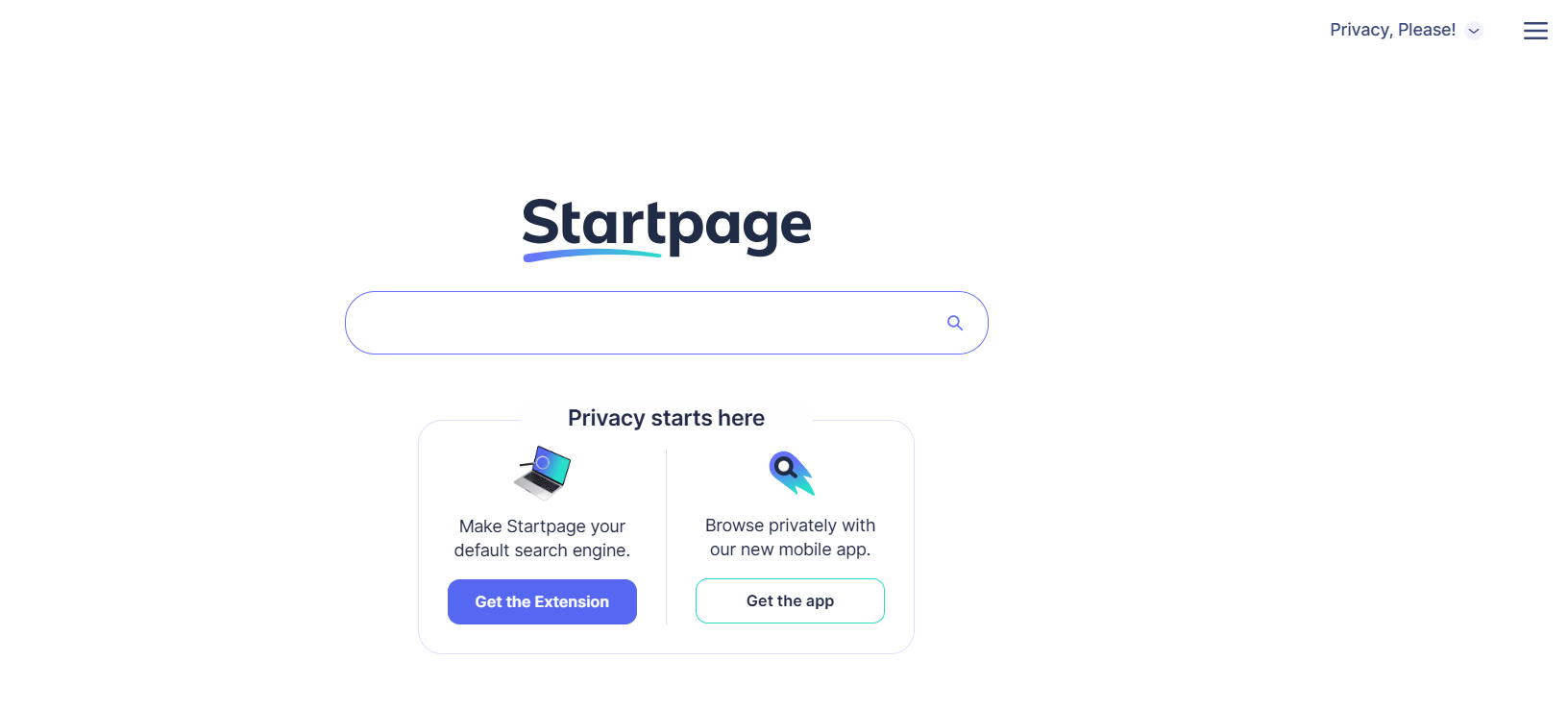
This striking private search engine has great features, such as Ixquick Proxy and Startpage Proxy, to help protect users’ information.
In 2023, news came that Startpage had breached the barrier of 3 million daily searches, an outstanding result for any search engine, let alone one oriented toward privacy.
This figure will surely increase further in the coming years, considering that several years of historic data security scandals have raised awareness and public concern regarding such issues. Startpage’s offering of Google results with increased privacy has appealed to users who want to go that one step further for data protection.
Who’s this for: Users who want Google-quality results without the tracking.
16. Swisscows
Swisscows is another Swiss-based search engine that focuses on privacy; this country has strict laws on that concern. It uses semantic information recognition to deliver fast, efficient results and does not store personal data securely.

By 2018, Swisscows processed about 20 million search queries per month, making it stand out as a privacy-centric search engine that doesn’t track or store user data (Wikipedia).
Swisscows does zero profile tracking and does not store any data IP address, or search history. It also protects users in the right direction, ensures their privacy, and creates a much safer online environment. Swisscows also focuses on family-friendly internet content and digital media education.
Who’s this for: Families, educators, or anyone seeking a safe and child-friendly search engine.
17. WolframAlpha
WolframAlpha is a powerful search engine created by Wolfram Research. It enables searchers to get immediate responses to their queries.
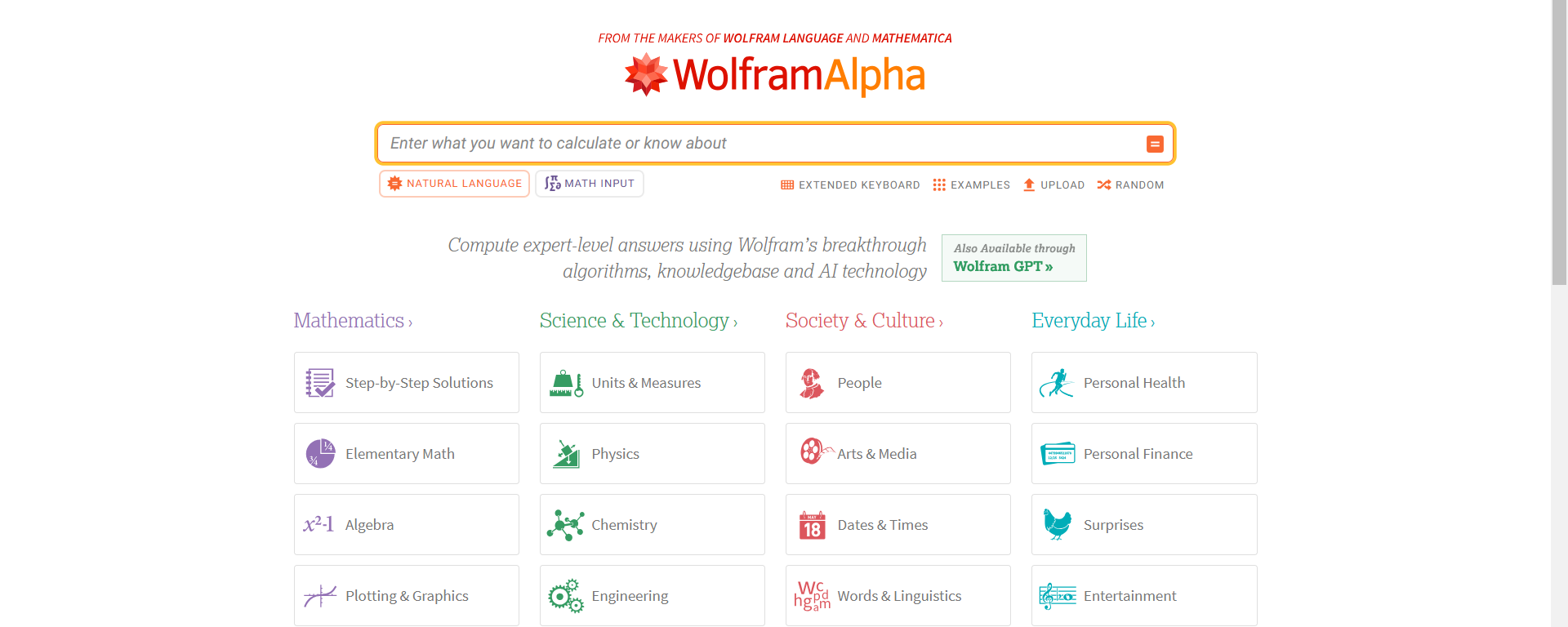
WolframAlpha is the only computational search engine that generates answers not from indexed Web pages but rather directly from structured data; it is considerably used in mathematics, data computation, and scientific information.
It also solves equations based on facts from various online sources. This search engine’s very important goal is to provide organized knowledge that is computable and available to the user.
Who’s this for: Students, researchers, data enthusiasts, and professionals looking for accurate, factual answers.
18. Yahoo!
Yahoo is another alternative search engine, and it does make searching online very simple. It has several options inside of it, including, but not limited to, Yahoo Answers, Yahoo Finance, News, Tech, Sports Scoreboard, Yahoo Plus, Online Shopping, and so on, making it a pretty holistic user experience.

Besides that, Yahoo is one of the few visually appealing search engines, as it includes Flickr, which provides users with numerous catchy images and videos.
Yahoo allows you to find valuable information through analysis and expert data. On the other hand, Yahoo Plus will let you enjoy an ad-free email inbox, along with security and customization features and premium content.
Who’s this for: Users who want an all-in-one portal for news, finance, and search, or those looking for familiarity with Yahoo’s classic interface.
19. Yandex
Yandex is one of the world’s biggest and most popular search engines and the leading one in Russia. Why should you start using Yandex? First of all, because of the beautiful and user-friendly interface, appealing visual content images or videos, and other marvelous features included for free: Yandex Mail, News, Disk cloud storage, Translate, AppMetrica marketing and analytics, Ads display, Map, and Browser.

Other services offered by Yandex make the experience seamless: Yandex.Maps, Yandex.Music, Yandex.Money, among others. Its machine-learning technologies make it a favorite in its region and can handle difficult search queries.
You needn’t bother about backlinking to rank your website with Yandex. Links are not a ranking signal in the algorithm of the leading search engine.
Who’s this for: Russian-speaking users, or those looking for content relevant to the region of Russia or Eastern Europe.
20. Youcare
Youcare is an excellent charity search engine alternative sthat supportssocial causes. The search engine sdonates ad revenues to numerous charities. Users’ web searcheshelp Youcare contribute generously to social issues.

Unlike other search engines, which prioritize profits, Youcare gives you the power to direct your searches to support good causes.
Youcare enables you to browse the internet and connect your online activity with causes that matter to you. It offers an alternative to other search engines, where your search activity may be used for targeted advertising.
Who’s this for: This search engine is for an environmentally aware audience because, with every search, it contributes all the profits to reforestation and other ecological projects.
Conclusion
In the end, with all these different choices of search engines in 2024, each of us will be able to choose one that best fits our view on either privacy concerns, environmental values, or specific content concerns. By looking at other search engines apart from Google, you find the ones that will keep your private life private, help care for the environment, or give another interesting search experience that better fits your priorities.
For a general search with a bias toward privacy, DuckDuckGo is the first choice: its perfect blend of ease of use, relevance in its results, and strong privacy practices makes it a reliable Google alternative for day-to-day use.
Bing works well for Microsoft users, as it provides smooth integration with its suite. Ecosia is probably the best if users are very eco-conscious since they use the ad revenue to plant trees. WolframAlpha works great for more complicated computations; thus, it is almost essential in student and researcher contexts. Bing provides a special AI-driven experience that can be customized.

